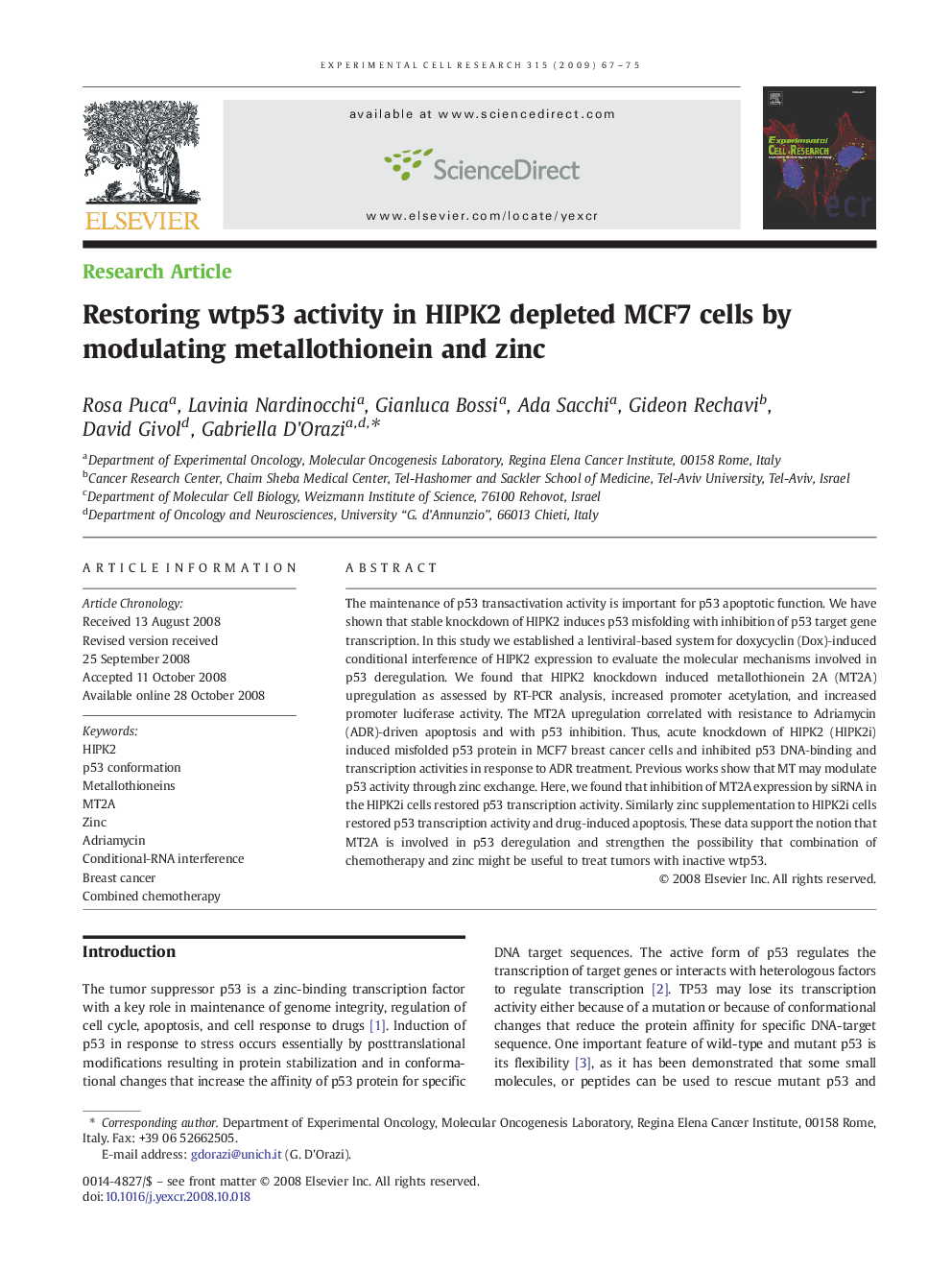| Article ID | Journal | Published Year | Pages | File Type |
|---|---|---|---|---|
| 2131650 | Experimental Cell Research | 2009 | 9 Pages |
The maintenance of p53 transactivation activity is important for p53 apoptotic function. We have shown that stable knockdown of HIPK2 induces p53 misfolding with inhibition of p53 target gene transcription. In this study we established a lentiviral-based system for doxycyclin (Dox)-induced conditional interference of HIPK2 expression to evaluate the molecular mechanisms involved in p53 deregulation. We found that HIPK2 knockdown induced metallothionein 2A (MT2A) upregulation as assessed by RT-PCR analysis, increased promoter acetylation, and increased promoter luciferase activity. The MT2A upregulation correlated with resistance to Adriamycin (ADR)-driven apoptosis and with p53 inhibition. Thus, acute knockdown of HIPK2 (HIPK2i) induced misfolded p53 protein in MCF7 breast cancer cells and inhibited p53 DNA-binding and transcription activities in response to ADR treatment. Previous works show that MT may modulate p53 activity through zinc exchange. Here, we found that inhibition of MT2A expression by siRNA in the HIPK2i cells restored p53 transcription activity. Similarly zinc supplementation to HIPK2i cells restored p53 transcription activity and drug-induced apoptosis. These data support the notion that MT2A is involved in p53 deregulation and strengthen the possibility that combination of chemotherapy and zinc might be useful to treat tumors with inactive wtp53.
